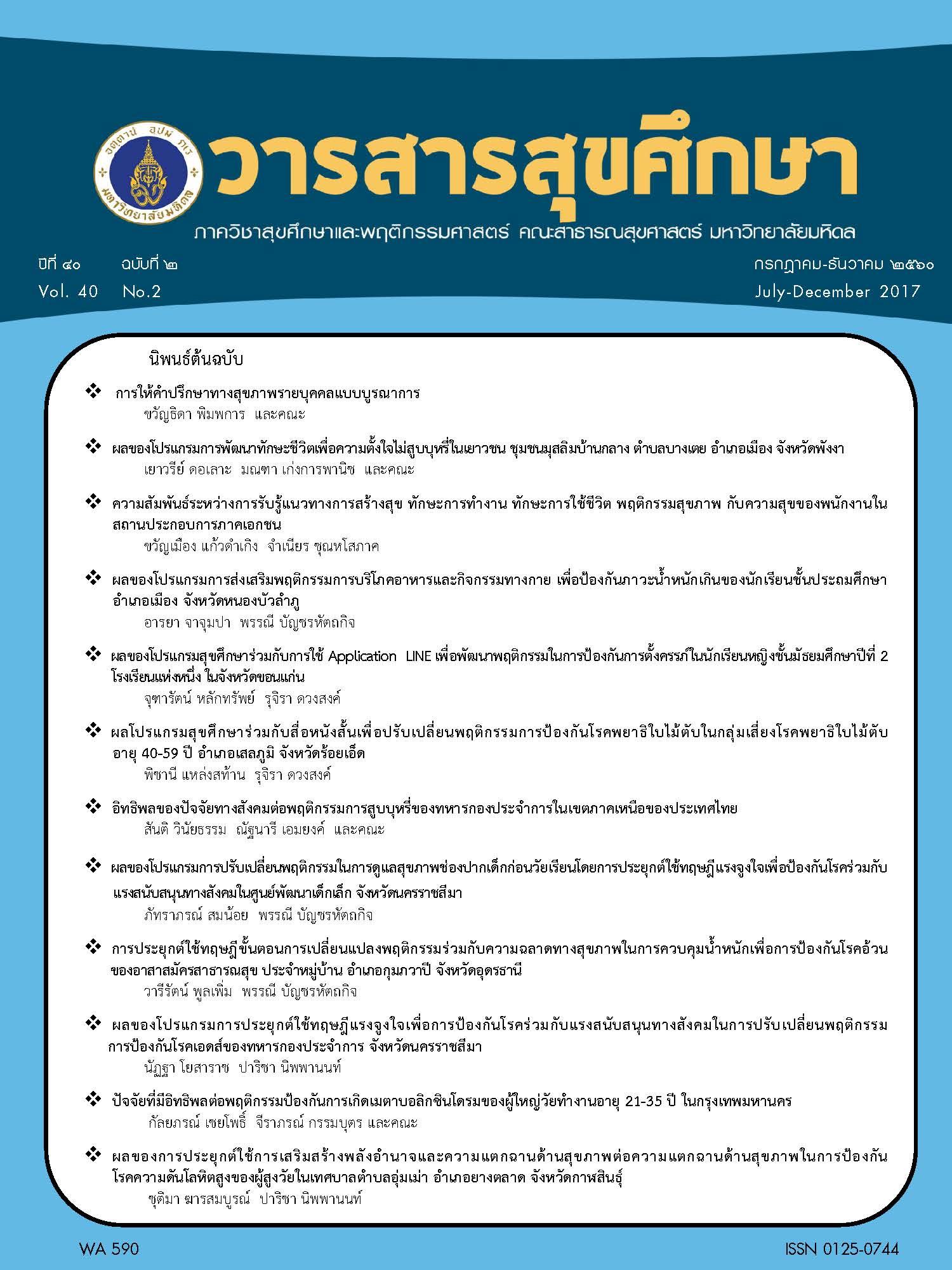Effect of Health Promotion Program on Food Consumption and Physical Activity Behaviors for Overweight Prevention among Primary School Students, Muang district, Nong Bua Lumphu Province
Keywords:
Health promotion program, Food consumption and physical activity behavior, Overweight, Primary school studentsAbstract
This study was a quasi-experimental research and aimed to test the effect of health promotion program in food consumption and physical activity behaviors modification by the application of Protection Motivation Theory and social support for overweight prevention among primary school students, the fourth to the sixth levels. The samples consisted of 64 students and divided into two groups; an experimental and a comparison group, which 32 students in each group. The experimental group was received health promotion program of food consumption and physical activity behaviors. The implementations consisted of giving knowledge and skills through power point presentation, teaching with video, food model, sample food, brochures, work sheets, role model, group discussion, demonstration and physical activity practice, including social support from teachers, parents, friends and researchers. The duration of implementation was 12 weeks. Data were collected by questionnaires. Data were analyzed by descriptive statistics such as frequency, percentage, mean and standard deviation. Analytical statistics was used by Paired Sample t-test and Independent t-test.
The results showed that after implementation, the experimental group had higher mean scores of knowledge about food consumption and physical activity behaviors, perceived severity, perceived susceptibility, perceived self-efficacy, perceived response efficacy and practice for overweight prevention than those before receiving the program and higher than those in the comparison group. (p<0.001). Nutritional status and a percentage of total body fat of the experimental group were normally higher than before the experiment and higher than the comparison group.



